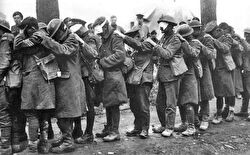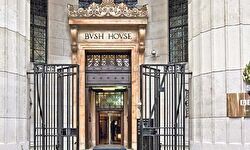
What is news? To judge from the daily newspapers and TV bulletins we can discard my favourite definition – that it is something that someone somewhere doesn't want us to know. Most of the time, powerful people do want us to know what's in the news. Astonishing events that burst into our consciousness with the impact of the attack on the Twin Towers are very rare indeed. Most of the rest is just regurgitated announcement, speech or advertisement. Sometimes, the press release has scarcely been rewritten. Maybe that's why so many people don't seem to be paying much attention any more.
It is the genuinely unexpected that keeps us listening, afraid we might miss something. As Andrew Pettegree, a distinguished historian, demonstrates in The Invention of News, very few of us can resist the urge to learn. It's an ancient hunger. He credits the first proper newspaper to a German stationer in 1605, and the first front-page illustration – an artist's impression of a battle in the 30 years' war – to a publication in Holland. The reformation, Pettegree suggests, was Europe's first mass-media news event.
Reporters in rehab (now often posing as professors of media studies) have endlessly tried to define precisely what constitutes this thing "news". Plainly, an event does not have to be new to be news. In one of Newsnight's more troubled phases we used to joke that our slogan ought to be "if it's news, it's news to us". But, rather than endure yet another turgid thesis on the subject (isn't it striking that the study of a medium built on impact should have given rise to such notably unreadable literature?), we should be satisfied perhaps to define news as something that makes you think "well, I never knew that". By this definition, the unusual or unexpected is newsworthy.
One newspaper tycoon after another has got rich by alarming us with tales of neighbourhood cannibals, killer diets and secret Liberal Democrat tax plans.
Just let us not make the mistake of thinking that what we are offered is a realistic depiction of the world. Almost as soon as the country had achieved the goal of widespread literacy, men emerged who intuitively understood that we would pay to be reassured by having our flesh made to creep.
But the appetite for reliable intelligence about what was happening elsewhere existed long before printing had even been invented. Apparently, in the 11th century two remote mid-Wales monasteries would exchange messengers every three years. They stayed for a week, bringing monks up to date with the latest – and not so latest – gossip.
The Invention of News is a misleading title, of course. For events have always happened. What Pettegree is referring to is the reporting of events. It is a game in which life or death is determined by speed and trustworthiness. In 1900, Reuters in London knew about the relief of Mafeking long before the military commander in South Africa was even aware of what had happened. Nowadays, no one enjoys a beat for much more than an instant or two.
Technology has eliminated time-delay and now enables us to be virtually present at any event, almost anywhere. Enjoying lives of greater comfort and safety than ever before, we can be regaled in our own sitting rooms with mayhem or misery from most corners of the globe. But the more news there is, the less anyone really needs it. The result, too often, is paralysis – information overload. What are we to do with it all?
Thanks be, Alain de Botton has come among us again, as he does so often when we're perplexed. Anxious about whether you understand art? Do you appreciate sex properly? What's religion about? How can you be happy? Fear not, De Botton can tell you, quickly and easily. Not since Moses went up a mountain and came down carrying a couple of slabs of granite reducing life to 10 commandments has anyone been able to reduce the complex enigmas of existence down to simple injunctions. The man has a solution for everything.
And now he has turned his elegantly groomed brain to the news, which, he tells us early on, "now occupies a position of power at least equal to that formerly enjoyed by faiths". This is a claim to get mere mortals scratching our heads.
Admittedly Huw Edwards can come across like some evangelical preacher on a wet Sunday morning in Merthyr Tydfil, and indeed, most of the earnest prophets of news claim merely to be passing on a greater truth.
But the plain fact is the news is nothing like religion. It does not propose the existence of a supernatural being. It does not lay down rules for life. When it comes to it, news is just some things that have happened, as chosen by some not-very-interesting people running newspapers and television.
These people have rather predictable tastes and rather obvious blindspots. But they're worried. Which makes them shout a bit too wildly: after all, their jobs are on the line. The other day the Daily Telegraph ran a picture story showing how a boulder had rolled down a mountainside in Italy, adding "incredibly … no one was injured". Incredibly? It reads better than "unsurprisingly, since there was no one in its path", I suppose. And was it Liz Hurley or Thora Hird who denied she had had an affair with Bill Clinton? The madder everything gets, the less anyone needs to read any of it.
So on the torrent comes: 24-hour news channels on radio and TV, and websites, too, each one trying to make a little knowledge go slightly further than its rivals, the whole enterprise judged for the few minutes when a channel may, perhaps, claim to have something that no one else has got. The rest of the time, the machines clank away noisily but not necessarily to any great purpose. It matters not very much whether anything important has happened, the TV and radio bulletins will make their self-important appearance at the designated hour and at the designated length. The newsreaders' ponderous sobriety demands our attention. But why should we give it?
Alain de Botton's solution to this very 21st-century problem is to prescribe a new role for news. The News: A User's Manual is a nicely produced little tract, rather resembling an old Everyman edition. And De Botton is on to something. Perhaps it is time to question the nostrum that many of us have lived by, that the healthy democracy is the well‑informed democracy, that knowledge sets you free. The sheer ubiquity of news must have an effect on us, and it cries out for some proper analysis. But unfortunately, this is not it.
De Botton thinks the news ought to have a higher purpose than merely what is new. Flogging away at an attempt to draw an analogy between news and religion, his book is larded with much use of the word "should", as if the job of those in the editorial priesthood is really not to ask what is new and significant, but rather what is going to make our readers and viewers better people. He even joins the crusade – begun by Martyn Lewis, author of Dogs in the News and that other unjustifiably neglected masterpiece, Cats in the News – for more "Good News".
I fear De Botton the Sage rather misses the point. There is nothing so silly as a very clever man, and his prescription is as fruitful as arguing that a prawn should be a giraffe.
Andrew Pettegree's The Invention of News has attracted less attention than The News: A User's Manual, partly because he is a professor of history rather than a sleek metropolitan know-it-all. De Botton's cure for the indifference that afflicts so many of us when confronted with tidings of some awful human tragedy far away is for the news to be less preoccupied with accuracy and more with advocacy. Fine if De Botton is the advocate-in-chief. But just supposing that George Galloway, David Icke or Abu Hamza got the job?
If you have ever wondered how this noisy, self-important carousel got going, Pettegree's book will tell you. But rest assured, there is a lot more shouting to come. My advice? Find a good novel and go to bed.
Courtesy of The Guardian. Original article here.



